What Ioniq Means to Hyundai
The all-electric sub-brand is carving out a substantial lead in the electric vehicle market.
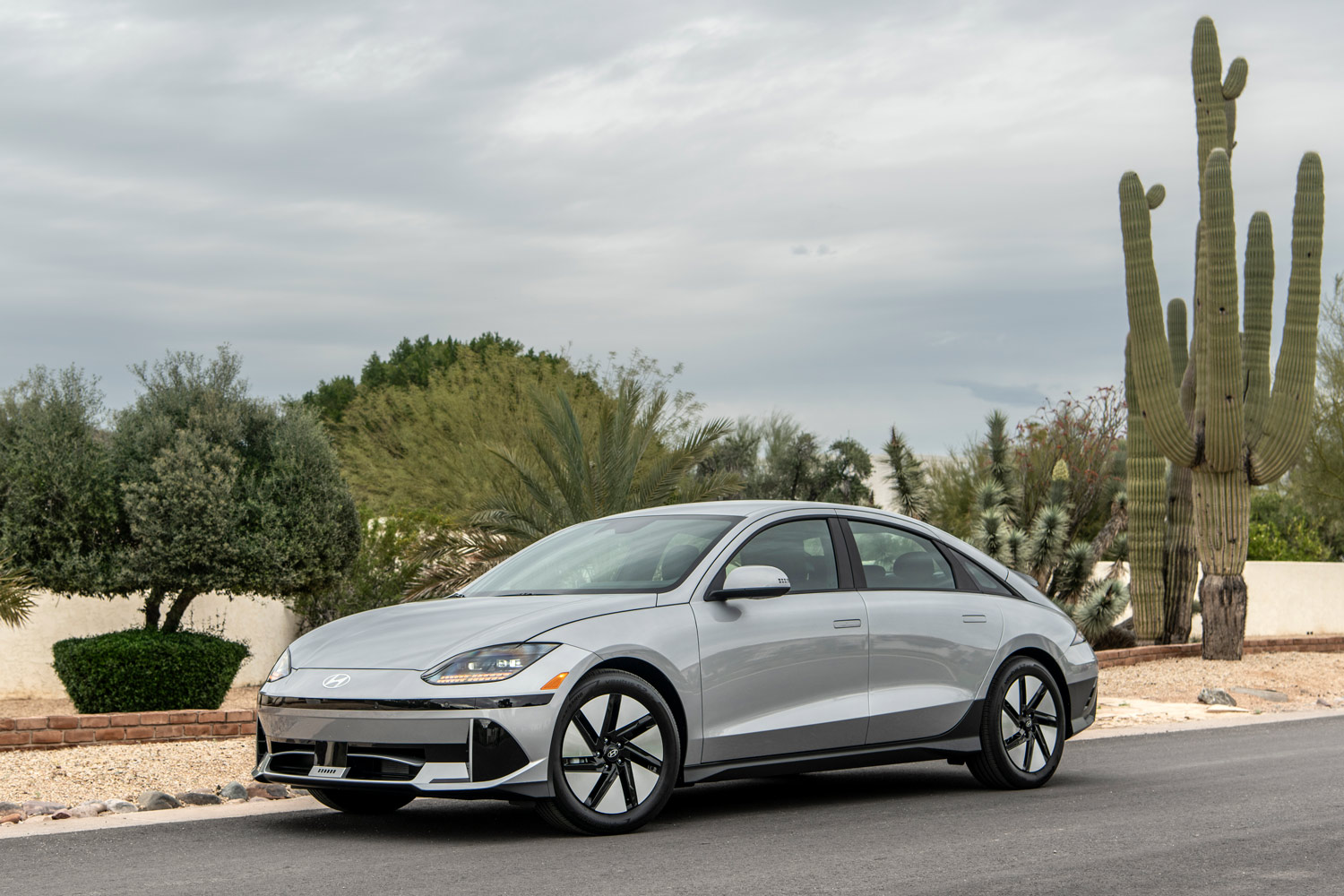 Hyundai
Hyundai
Over the past decade, Hyundai has grown its electric vehicle division into a diverse and technologically advanced array of vehicles. Perhaps most intriguing is that each of its battery-powered options is aimed at buyers outside of the luxury segment, providing customers access to electrified driving at a relatively affordable price point.
At the center of this effort is the Ioniq nameplate, a sub-brand within Hyundai that is the focus of its most advanced electric vehicles (EVs). Appearing for the first time for the 2017 model year, Ioniq has since grown to become an entire family of EVs that points to the future of the automaker.
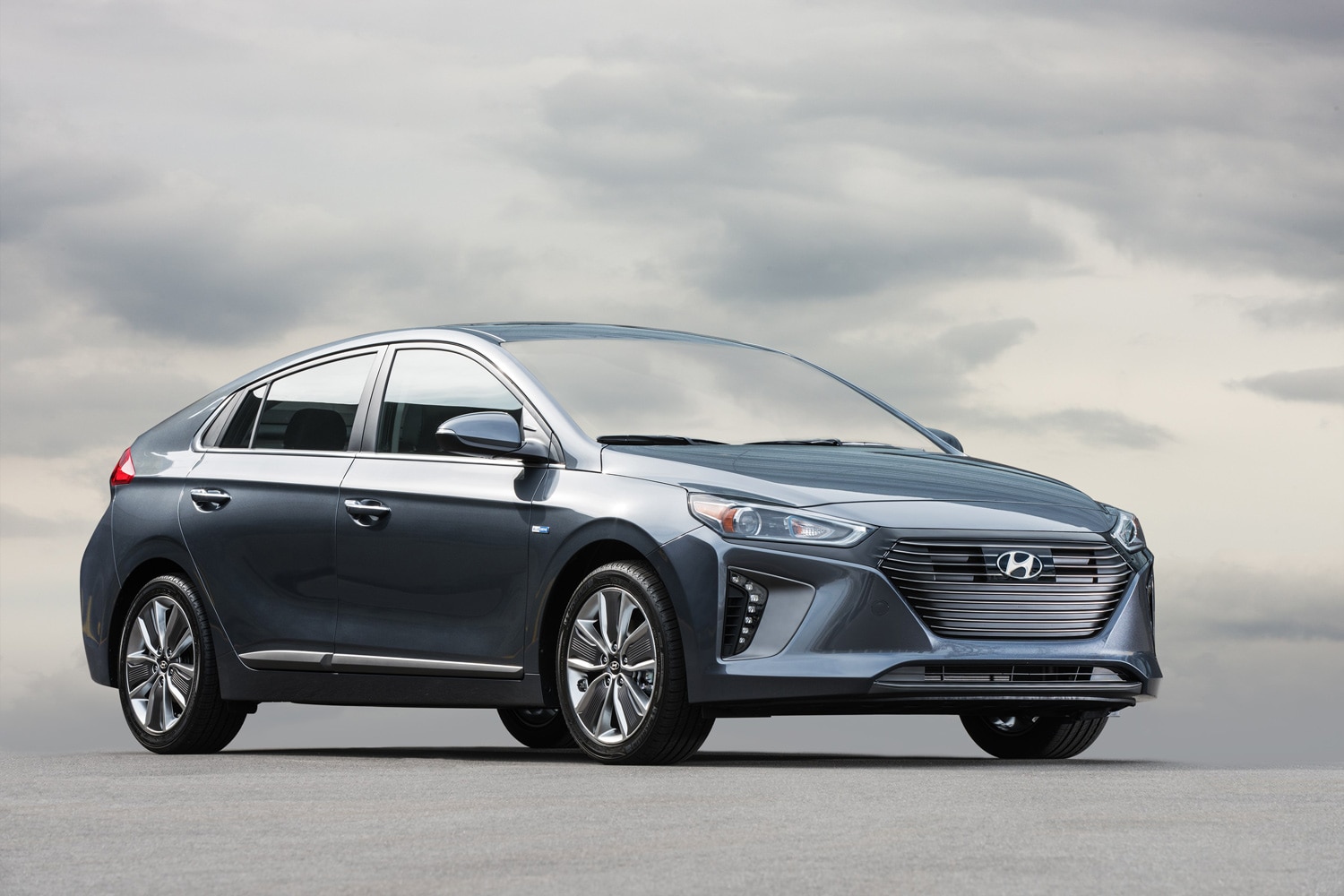 Hyundai
Hyundai
The Early Origins of Ioniq
The original Hyundai Ioniq was a compact hatchback offered as a traditional hybrid, a plug-in hybrid, and a fully electric vehicle. Although Hyundai sold an EV called the BlueOn in Korea several years before that and its corporate partner Kia featured an all-electric version of the Soul crossover in 2015, the Ioniq was Hyundai's first production EV sold in North America. It was followed by the Hyundai Kona EV, giving the automaker success at the entry level that few other mainstream manufacturers at the time could match.
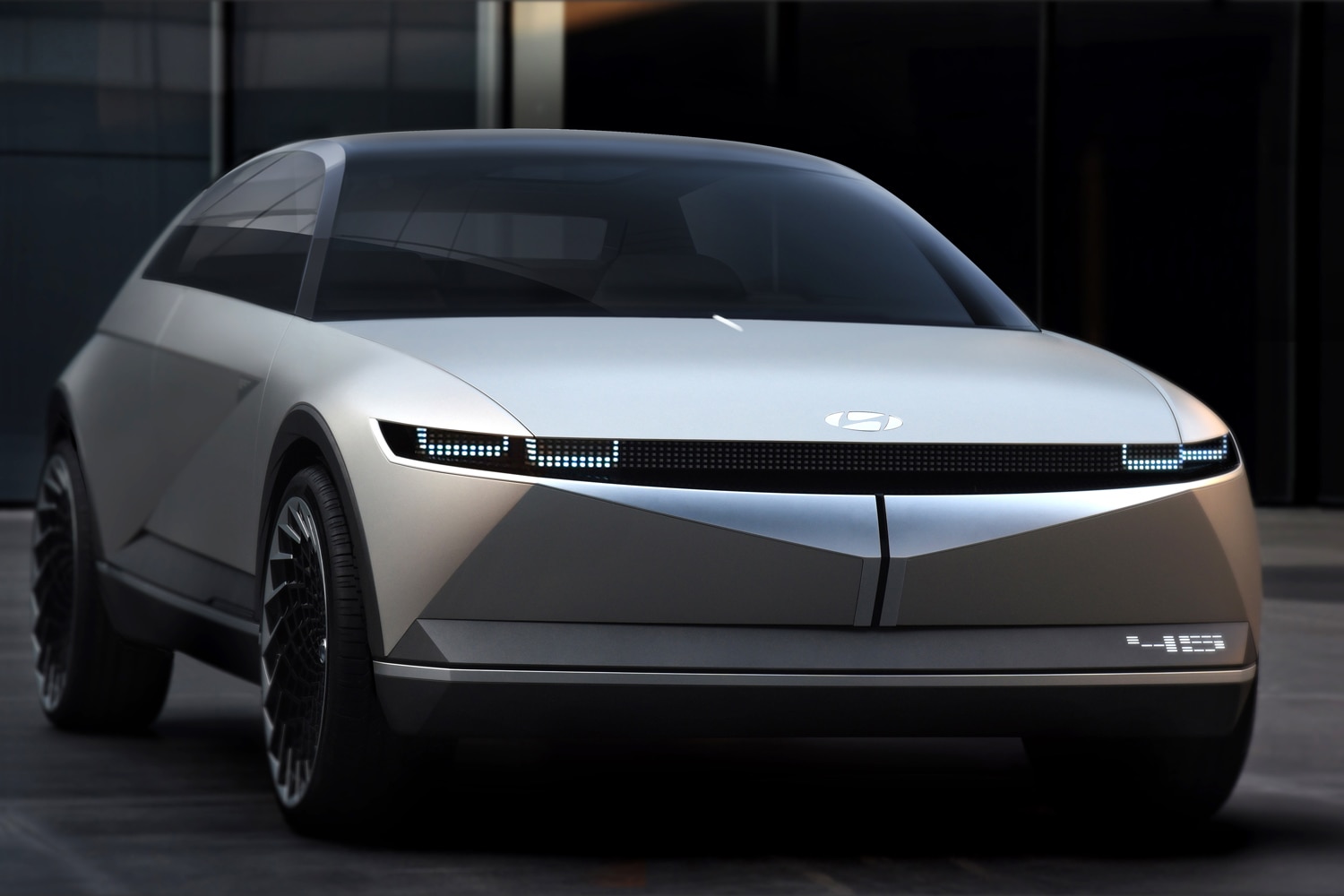 Hyundai
Hyundai
Expanding Ioniq's Technology
Hyundai had bigger plans for the Ioniq name than simply restricting it to a single model. The original Ioniq was part of an effort called Project Ioniq. It focused on what the future of driving might look like, and the success of the original vehicle convinced Hyundai that it would be possible to expand the Ioniq badge across a more varied list of offerings. The company combined the words "ion" and "unique" to create the sub-brand's moniker.
Hyundai moved fast in bringing Ioniq from the drawing board to the showroom. It began with the EV Concept 45 in 2019, a vehicle that predicted much of the styling and design of what became the production Ioniq 5 electric crossover, which arrived in showrooms for the 2022 model year. This was followed by the Prophecy concept in 2020, which previewed the look of the Hyundai Ioniq 6.
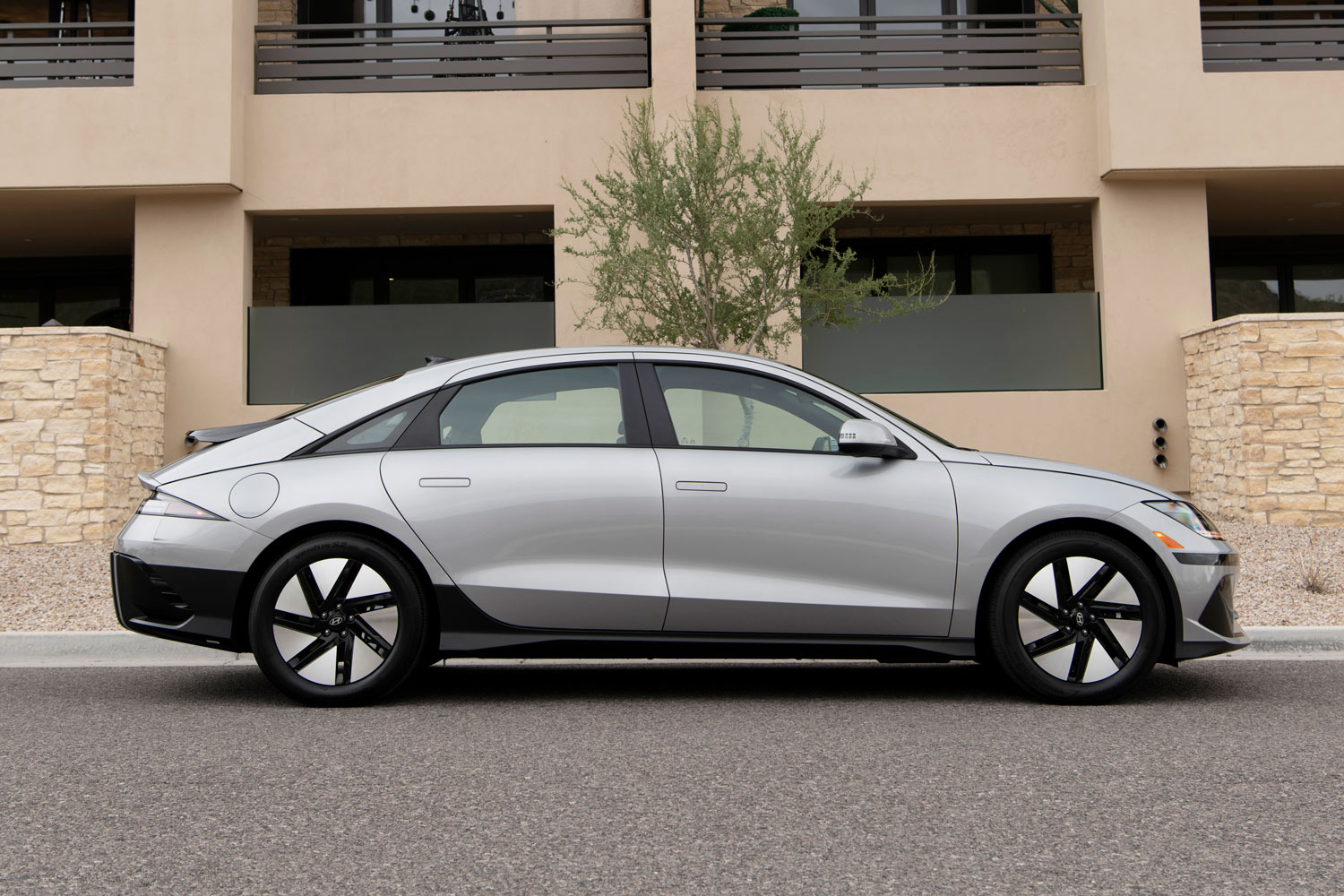 Hyundai
Hyundai
Where Ioniq Sits Today
Both the Ioniq 5 and the Ioniq 6 make use of a new platform Hyundai developed to be shared with Kia and Genesis for building their next generation of electric vehicles.
The Ioniq models sit on Hyundai's Electric-Global Modular Platform, known as E-GMP. The architecture allows for charging at speeds of up to 235 kW in ideal conditions, and can reach up to an 80% battery charge in less than 20 minutes. There are three battery sizes currently available with the E-GMP platform: 58, 72.6, and 77.4 kWh.
The Hyundai Ioniq 5 led the way with just over 300 miles of driving range, up to 320 horsepower, and the option of all-wheel drive. The Ioniq 6 sedan ups the range to 320 miles but maintains similar performance and options as compared with its platform-mate. Each of these vehicles also features a starting price between $40,000 and $45,000.
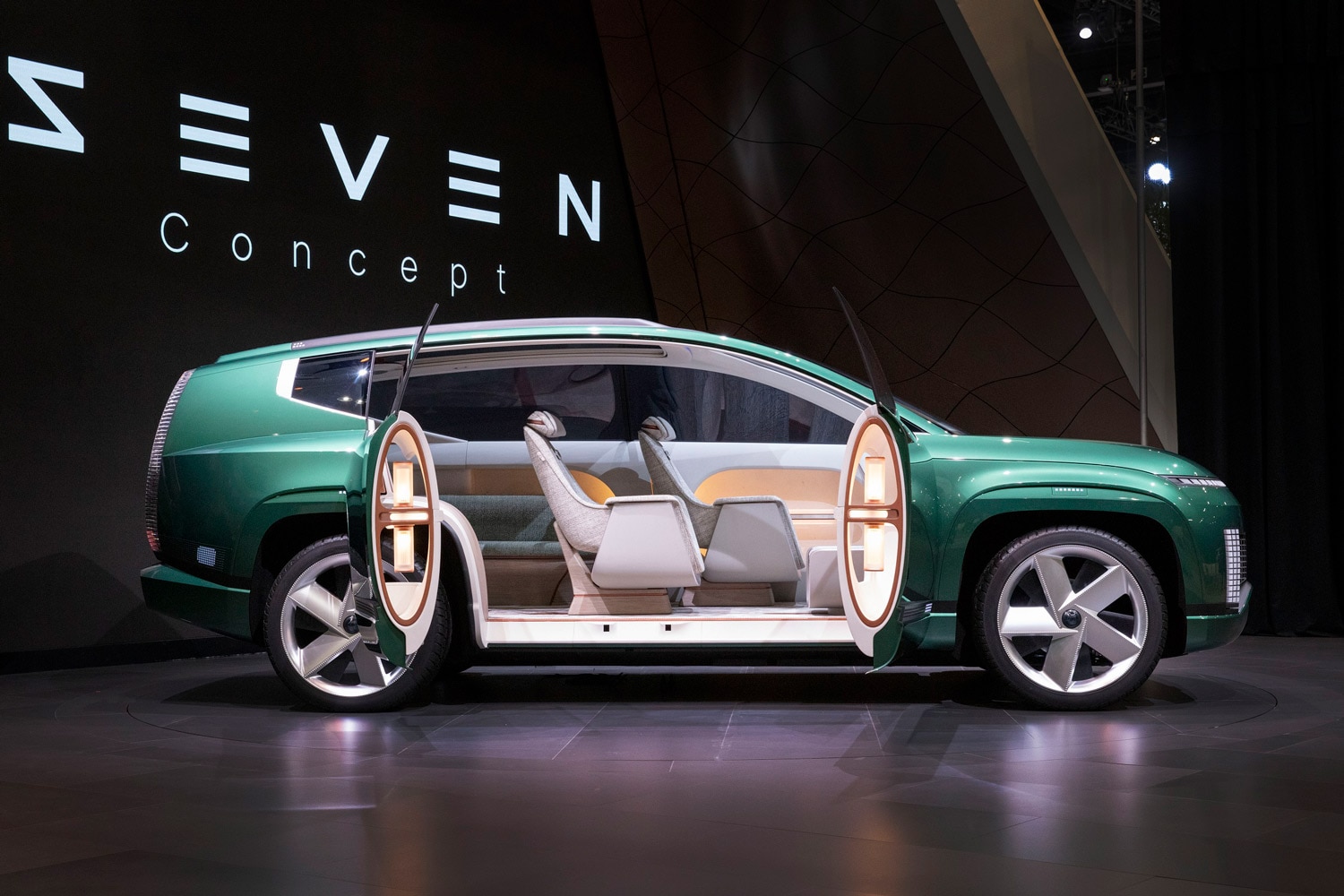 Hyundai
Hyundai
The Future of Ioniq
Hyundai isn't finished expanding the Ioniq brand. In 2021, it showed off the Seven concept, a three-row SUV that also made use of the E-GMP platform. This vehicle will eventually make it to market as the Ioniq 7, giving Hyundai crossover, sedan, and three-row SUV variants of the Ioniq technology to cover the needs of a number of potential customers.
Hyundai will also be moving into the realm of high-performance electric vehicles by combining the track-tuned characteristics of its N performance division with the E-GMP platform. The first vehicle to emerge from this pairing will be the Hyundai Ioniq 5 N, an all-wheel-drive model that will provide around 600 horsepower from a pair of electric motors. It will also feature the kind of aerodynamic enhancements to its bodywork and handling improvements to its suspension system that have become hallmarks of the N package.
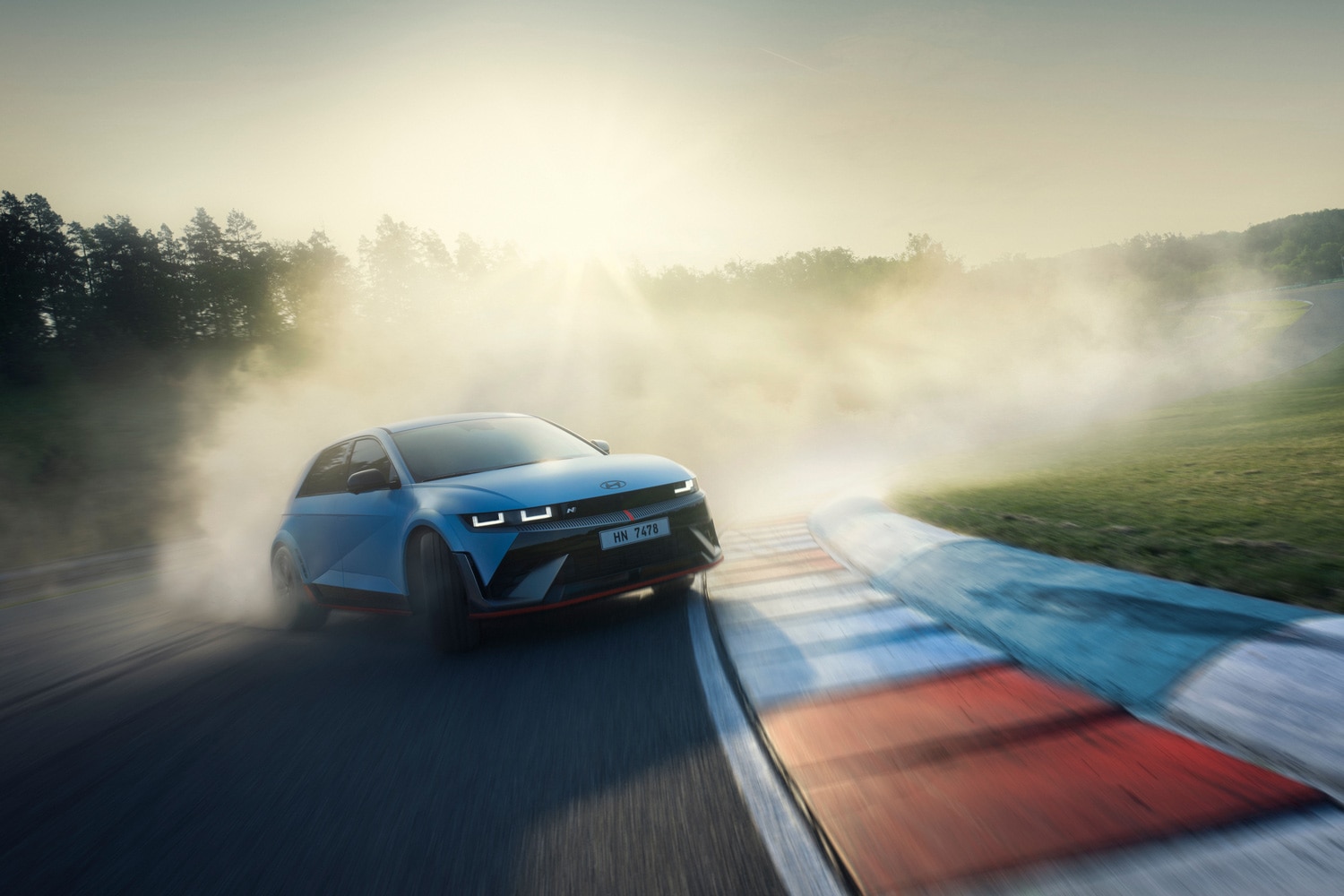 Hyundai
Hyundai
The existence of a full lineup of battery-powered vehicles, along with the performance push to prove that EVs can be about more than just range and carbon-neutral motoring, shows that Hyundai is serious about its Ioniq initiative. Compared with Toyota, which only offers a single EV in its lineup, or Honda, which unveiled its first fully electric vehicle for 2024, Hyundai is leading the electrified charge just ahead of domestic brands Ford and General Motors, both of which also provide multiple battery-powered options.
This front-runner status is further buttressed by the other E-GMP-platform models offered by Kia — the EV6 crossover and the upcoming three-row EV 9 SUV — and Genesis and its GV60 crossover and GV70 EV SUV.
Written by humans.
Edited by humans.
 Benjamin Hunting
Benjamin HuntingBenjamin Hunting is a writer and podcast host who contributes to a number of newspapers, automotive magazines, and online publications. More than a decade into his career, he enjoys keeping the shiny side up during track days and always has one too many classic vehicle projects partially disassembled in his garage at any given time. Remember, if it's not leaking, it's probably empty.
Related articles
View more related articles